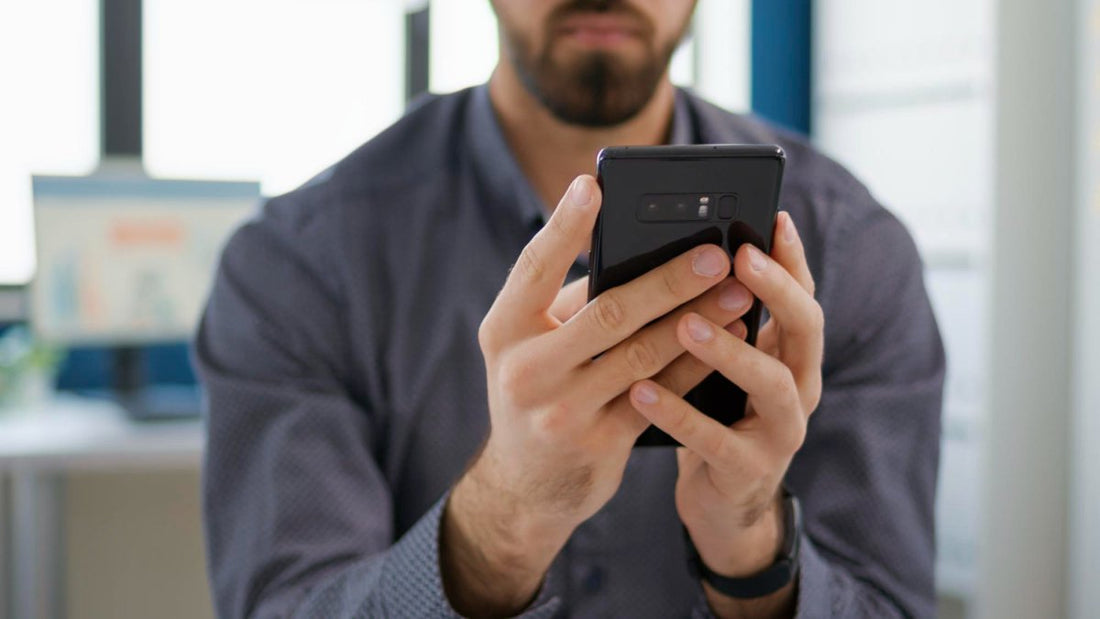Using Your Smartphone to Monitor Mental Health? Pros And Cons
 Written By
Yusela Aquino
Written By
Yusela Aquino

Mental health monitoring has been gaining ground as an ever-important topic in maintaining good overall health. Thankfully, in the 21st century, a lot of the stigma and taboo surrounding the topic has ceded way to more open and informed discussions. With the addition of smartphones and mental health monitoring apps, a lot of platforms now provide means of stress management, mood tracking, and even personalized support. But are there any explicit downsides to these solutions? In this article, we explore various aspects, pros, and cons surrounding the topic of mental health monitoring.
Mental Health Monitoring: Why It Matters
The stigma around mental health is fading, and opening up to ask for help during tough times is gradually losing its taboo status. Regular mental health monitoring can easily change lives and prevent people from developing more serious mental health conditions that would cause further damage in their lives.
When overlooked, mental health issues can slowly chip away at our overall health. Given the widespread availability of smartphones, utilizing mental health monitoring apps as powerful tools can guide you on the path to better mental health and lead to significant improvements in all areas of your life, such as:
- Identifying mood fluctuation patterns
- Recognizing signs of depression or anxiety
- Understanding how your daily life choices relate to mental well-being
- Tracking the effectiveness of treatment, therapy, or pro-mental health practices and techniques
- Improving self-awareness and emotional intelligence
Recommended Mental Health Monitoring Apps
Modern medicine allows us to screen for various problems without needing to go to the doctor, including things like at-home cholesterol testing or home STD tests. Mental health apps for smartphones fall into that incredibly practical category o ways to care for yourself as well.
Want to know how to monitor mental health at home? Take a look at some of these smartphone apps:
Calm
Calm helps its users unwind before sleep by reducing their stress and anxiety and practicing mindfulness techniques. It’s a well-rounded solution for meditation, breathing, and many other ways to remain more grounded in daily life, which makes managing mental health struggles much more convenient.
Headspace
With Headspace, users can participate in a comprehensive guided meditation course to practice mindfulness and relieve stress. With continued exercise and access to variable-length meditation sessions, they can improve their mental health and clarity with just a few minutes per day.
Daylio
As a true mental health monitoring app, Daylio’s functionality is based around journalling and daily mood tracking. Users log their daily activities and emotions, identify patterns, and gain insights into how their actions impact their moods.
Happify
Happify aims to gamify the concept of mental health monitoring and mindfulness. Through various activities, users are introduced to the basics of cognitive-behavioral therapy and positive psychology. The app also enables users to journal and track their moods to better manage stress and anxiety.
Moodfit
Moodfit provides users with various tools and insights to track, recognize, and understand all aspects of their mental well-being. The app also emphasizes actively pursuing positive change through setting goals and trying out beneficial exercises.
Cons of Mental Health Monitoring with a Smartphone
While making the most of the available technology can certainly be beneficial, it’s equally important to remain aware of the pitfalls and traps that come with an overreliance on mental health monitoring with a smartphone. Here are just a few of them:
- Lack of professional oversight: It’s key to remember that these apps aren’t meant to function as fully-fledged, standalone treatments. While they can serve well as a stopgap or supplementary measure, they shouldn’t replace professional help.
- Privacy concerns: Some of these mental health monitoring apps will invariably collect sensitive users’ data, which makes it paramount to always remain vigilant about protecting it.
- Generalistic approach & accuracy issues: Mental health monitoring apps employ generalized algorithms whose one-size-fits-all approach won’t always accurately address each individual user’s troubles or concerns.
- Digital dependence: Many people experience symptoms of anxiety and depression due to excessive screen time and overusing social media. Utilizing mental health monitoring apps could increase the users’ exposure to both of the negative factors, inadvertently exacerbating the problems.
Paint the Full Picture of Your Health with Ribbon
Keeping your mental health in check is crucial to your well-being – but so is regularly testing your physical health. With the Ribbon Testing Kit, you gain access to a tool to broadly overview your general state and give you information about a range of health indicators, all without leaving your home.
Combining mental health monitoring techniques with at-home checkups lets you obtain the complete picture of your health and ensure you catch early symptoms early. Order a bundle and download the free Ribbon app today to gain full control of your health.
The Takeaway
How to monitor mental health? Smartphone apps work great to help you establish positive patterns and introduce stress-preventing habits. It’s important to note, however, that apps will never fully replace professional help from a licensed therapist. They should instead serve as complementary tools on the road to building a better you.
Related Resources
- How to Prepare for a Home Cholesterol Test
- At-Home Liver Tests: A Comprehensive Guide
- The Complete Guide to At-Home Kidney Function Tests
- Ribbon Checkup Urine Test: Simple At-Home Health Tracking

Yusela is a medical student with a degree in Biology and a strong foundation in health communication. With experience in both research and clinical settings, she writes clear, evidence-informed content to help patients and caregivers better understand liver health, chronic disease, and transplant care.



